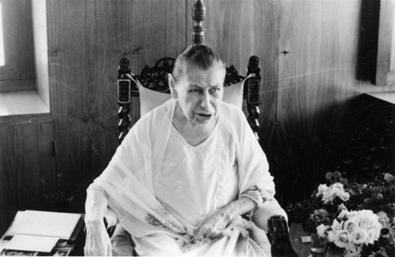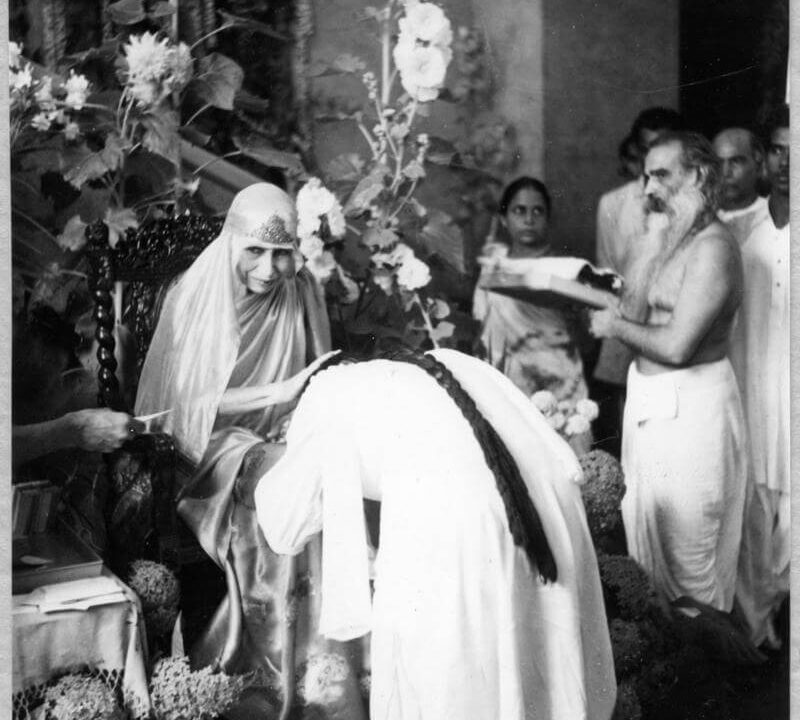The rule of the Divine Life

Bhavani Bharati – Verse 97
06/03/2019
Bhavani Bharati – Verse 98
06/04/2019Enjoyment of the universe and all it contains is the object of world-existence, but renunciation of all in desire is the condition of the free enjoyment of all. The renunciation demanded is not a moral constraint of self-denial or a physical rejection, but an entire liberation of the spirit from any craving after the forms of things.
The terms of this liberation are freedom from egoism and, consequently, freedom from personal desire. Practically, this renunciation implies that one should not regard anything in the universe as a necessary object of possession, nor as possessed by another and not by oneself, nor as an object of greed in the heart or the senses.
This attitude is founded on the perception of unity. For it has already been said that all souls are one possessing Self, the Lord; and although the Lord inhabits each object as if separately, yet all objects exist in that Self and not outside it. Therefore by transcending Ego and realising the one Self, we possess the whole universe in the one cosmic consciousness and do not need to possess physically.
Having by oneness with the Lord the possibility of an infinite free delight in all things, we do not need to desire. Being one with all beings, we possess, in their enjoyment, in ours and in the cosmic Being’s, delight of universal self-expression. It is only by this Ananda at once transcendent and universal that man can be free in his soul and yet live in the world with the full active Life of the Lord in His universe of movement.
Ref: Isha Upanishad




